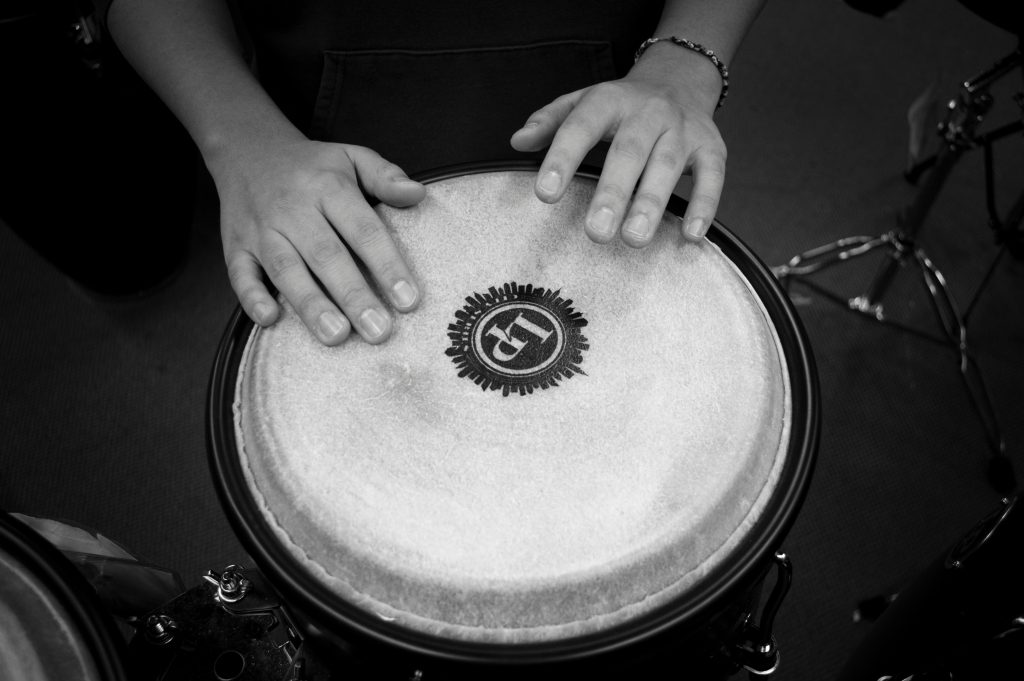When it goes unchecked, stress can eat us up. It can make us anxious or depressed, disrupt our sleep, and cause serious health issues with long-term ramifications. That means combatting stress should be something we do consciously and regularly, right?
Most people have the best intentions, but the problem is that the negative effects of stress often fight against our will to remove it. It’s hard to be calm when your brain is telling you the opposite and running you through a list of worries or to-do items, after all.
Something outside the body — relaxing music — can help manage that stress and improve your relaxation, however. Here’s how it works to neutralize those not-so-productive feelings.
Understanding Relaxing Music’s Impact on the Body

Certain types of music have physiological impacts. Soothing, slow tunes slow the pulse, for example, while faster rhythms have the opposite effect. It’s important to know this because your body has similar responses to stress: Your heart beats faster when your body is stressed, and slower when your body is relaxed.
That means regulating your heart rate works to calm you down, allows you time to think, and enables you to make better, more rational decisions. A slower heart rate also lowers blood pressure, which is important for overall health and wellness.
All of this works together to decrease the release of stress hormones in the body, particularly a hormone called cortisol. Cortisol gives us the natural reaction to fight or flee during high-stress situations. In that sense, it’s good because it helps keep us alive when we’re in danger.
However, if the body is always stressed, it will always be creating cortisol, which is not good. Too much cortisol can cause sleep problems, irritability, anxiety, weight gain, and other reactions that only add to the stress. Lowering your levels of cortisol through relaxing music is one easy and effective way to reduce stress.
Which Sounds Are the Most Relaxing?
Not all music is equal when it comes to being soothing. Slow, gentle sounds do the best job of lowering our feelings of anxiety and stress. Classical, Native American, Celtic, and Indian tunes are known to help with relaxation, and the most calming instruments tend to be piano, strings, drums, and flutes.
Instrumental music is not the only type that helps the brain and body relax, though. Sounds from nature, such as thunderstorms, rain, and the sound of a bubbling brook, all help reduce stress. In a one scientific abstract found that “the sound of rippling water was equally preferred and perceived as relaxing as music by [its] participants.”
Why is this?
It could be that our brains seek to connect with nature, so we intuitively find comfort in natural environments over urban ones. Does this mean relaxing music is less effective for calming than running water? That might be a personal choice. Try putting them together! Nature sounds paired with soothing music can be very powerful for relaxation.
Relaxing Music and Meditation
People all over the world and throughout history use and have used meditation to help relax and gain inner peace. Meditation carries many short- and long-term benefits, and are many ways to practice it. It is often related to mindfulness, being aware of your physical body, and being fully present in your experiences. Many practitioners can find it challenging to enter the helpful meditative state they need, but relaxing music can help.
There is a loop effect here: Calming music makes it easier to quiet the mind in preparation for meditation. Meditating can help you relax, which makes it easier to stay calm. Playing relaxing music can help you focus on one thing, the soothing melody, which eases the mind and reduces worry patterns. Focus on these questions:
- How does the music make me feel?
- What are my reactions to it?
You may then find it easier to move to a different focus, like a peaceful mantra, or to simply slip into a more blissful state of relaxation.
Meditation can help people of all ages, but children often have more difficulty entering into the peaceful state. Relaxing music gives them the same sense of calm, helping them find inner peace and experience the benefits of meditating.
How to Use Music for Relaxation

Almost everyone has access to music on a phone, computer, or in a car and can plug in a set of earphones and listen while taking a walk or studying. We have this at our fingertips and yet often fight against trying to relax when we are stressed.
Listening to music or creating our own may be some of the easiest tools we can use to tap into powerful stress-relieving benefits. Here are some ways to incorporate relaxing music into your life:
- Try turning on the radio instead of the television.
- Play relaxing music in your car to lower your stress levels while on the road.
- Use earphones while walking your dog or exercising.
- Sing a song out loud to change your attitude and reduce tension.
- Play an instrument. The concentration required will help you focus on something outside your anxieties.
- Play or sing a song you know well. The repetitive nature can relax you.
- Use nature sounds or a relaxation app to create a calming atmosphere when falling asleep.
- Take a bath with relaxing music in the background for a spa-like experience.
- Feeling depressed? Try some of the music suggestions below.
Relaxing Music Suggestions
It is easy to Google “relaxing music” and find something that appeals to you. Music taste varies from person to person, so the songs you find calming may not be relaxing to someone else. This short list of suggestions includes meditative music that may help you find a moment of peace.
- Weightless — Marconi Union
- Echoes of Time — R. Carlos Nakai
- Classical Indian Music for Healing and Relaxation — Music for Deep Meditation
- As Twilight Fades — Dan Gibson
- Celtic Fantasy Music — Ean Grimm
Experience and immerse yourself in music, then watch how it helps to relax you. If you’re interested in the meditative benefits of learning to play an instrument, let us know! The Sloan School of Music offers lessons for multiple instruments and all ages. Contact us today for more information.










